Faculty
Core Faculty Affiliated with Neuroscience Initiative
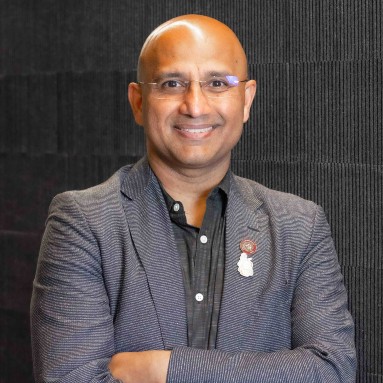
Email: jsrinivasan@wpi.edu
Phone: +1 (508) 8315000 x6564
It has been my lifelong dream to become a professor in the field of Biology. Being a faculty member provides a great opportunity to teach and interact with students. Students by nature are highly inquisitive and motivated, and as teachers, we have the responsibility to guide our students to explore and think in new ways. I believe that teaching is a two-way interaction between teachers and students. I come from India and my parents, both of whom were teachers, taught me to strive for excellence in my scholarly pursuits. Science bears no geographical barriers and my academic training has taken ...
view profile
Email: rdempski@wpi.edu
Phone: +1 (508) 8315000 x4193
Our research integrates investigating the structure and function of targeted membrane proteins with development of mixed reality tools for workforce development. We combine biochemical and biophysical techniques to investigate the structure and function of two classes of membrane proteins. In the first instance, we are investigating the mechanism of a zinc transporter, hZIP4. This protein has been implicated in the initiation and progression of pancreatic cancer. Despite the central role of this protein in cellular homeostasis, the mechanism of cation transport is not well understood. ...
view profile
Email: acrodriguez@wpi.edu
Phone: +1 (508) 8315000 x5787
Angela Incollingo Rodriguez is an Associate Professor of Psychological & Cognitive Sciences and Neuroscience. She directs the Stigma Eating & Endocrinology Dynamics (SEED) Lab and collaborates on interdisciplinary research initiatives throughout WPI and around the globe.Dr. Rodriguez's research program harnesses an integrated biopsychosocial approach to identify psychosocial predictors and mechanisms that drive health behaviors, overall health, and health disparities. Her mixed-methods research occurs at the intersection of social phenomena (such as weight stigma), biomarkers ...
view profile
Email: jaking@wpi.edu
Phone: +1 (508) 8315000 x4677
Dr. Jean King is an active neuroscientist and Peterson Family Dean of Arts & Sciences at Worcester Polytechnic Institute. Previously Dr. King was the Vice Provost of Biomedical Research and Professor of Psychiatry, Radiology, and Neurology (with tenure) at UMass Medical School, where she had been a faculty member since 1994. Together with other administrative leaders at WPI, Dean King has launched new undergraduate and graduate programs in Learning Science, Neuroscience, Interactive Media and Game Development, and AI and has expanded undergraduate research opportunities. Dr. King’s ...
view profile
Email: xkong@wpi.edu
Phone: +1 (508) 8315000 x5860
Professor Kong’s research interests focus on data mining and machine learning, with emphasis on addressing the data science problems in biomedical and social applications. Data today involves an increasing number of data types that need to be handled differently from conventional data records, and an increasing number of data sources that need to be fused together. Dr. Kong is particularly interested in designing algorithms to tame data variety issues in various research fields, such as biomedical research, social computing, neuroscience, and business intelligence. He has been working on ...
view profile
Email: dkorkin@wpi.edu
Phone: +1 (508) 8315000 x4916
My research is interdisciplinary and spans the fields of bioinformatics of complex diseases, computational genomics, systems biology, and biomedical data analytics. We bring expertise in machine learning, data mining, and massive data analytics to study molecular mechanisms underlying genetic disorders, such as cancer, diabetes, and autism, and deadly infections, such as pandemic flu. Our approaches benefit from integrating multi-omic, systems, and structural biology data. We also develop hardware-optimized algorithms to understand the evolution of animal and plant genomes on the large scale. ...
view profile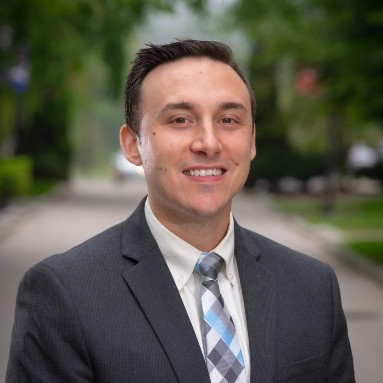
Email: rlopez1@wpi.edu
Phone: +1 (508) 8315000 x6805
Richard Lopez is an Assistant Professor of Neuroscience and Psychology in the Department of Social Science and Policy Studies at WPI. He teaches undergraduate and graduate courses in psychology, social neuroscience, and Open Science practices applied to functional neuroimaging. He also directs the Social Neuroscience of Affective Processes (SNAP) Lab. In the SNAP Lab, Professor Lopez and his students utilize tools in modern neuroscience (e.g., fMRI) and longitudinal modeling of behavior to better understand how human beings align their thoughts and emotions with goals they are pursuing—with ...
view profile
Email: inechipurenko@wpi.edu
Phone: +1 (508) 8315000 x6314
My lab investigates signaling mechanisms of neuronal development. We are particularly interested in studying the role of the primary cilium in this context. Primary cilia are specialized filamentous structures that protrude from the surface of most human cells including neurons and mediate transduction of all major signaling pathways. Due to their central role in signaling, primary cilia are required for development and tissue homeostasis in vertebrates, and cilia defects are causal to a large spectrum of genetic disorders called ciliopathies. One research direction in the lab is centered ...
view profile
Email: bnephew@wpi.edu
I work with Dean Jean King, where our research is broadly focused on identifying and studying neurobehavioral mechanisms of mental illness and developing effective interventions. We currently use functional MRI (fMRI) to identify the neural correlates of mindfulness based stress reduction as part of a stage IIa randomized clinical trial, and fMRI data combined with related clinical measures to develop machine learning based early predictors of severe depression and suicidality. I developed a transgenerational social stress based rodent model of postpartum depression/anxiety, and related ...
view profile
Email: ruiz@wpi.edu
Phone: +1 (508) 8315000 x5640
Carolina Ruiz is the Associate Dean of Arts and Sciences and the Harold L. Jurist ’61 and Heather E. Jurist Dean's Professor of Computer Science. She joined the WPI faculty in 1997. Prof. Ruiz’s research is in Artificial Intelligence, Machine Learning, and Data Mining, and their applications to Medicine and Health. She has worked on several clinical domains including sleep, stroke, obesity and pancreatic cancer. Prof. Ruiz and her research group have developed novel, high-performing machine learning methods, including deep learning networks, for analyzing physiological sleep data; and machine ...
view profile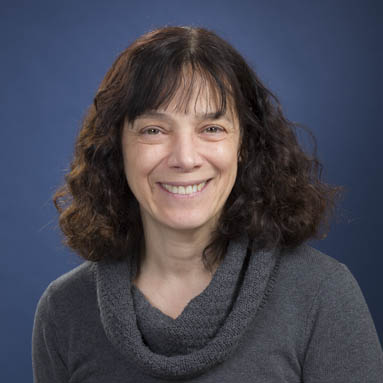
Email: sfscarlata@wpi.edu
Phone: +1 (508) 8315000 x6803
Suzanne Scarlata, Richard Whitcomb Professor of Chemistry and Biochemistry, joined the university faculty in 2016. She studies how small molecules in the bloodstream can change the behavior of cells. In particular, she is interested in how certain hormones and neurotransmitters can activate a family of organic molecules known as G proteins (guanine nucleotide-binding proteins), which are involved in transmitting signals from various stimuli from the exterior to the interior of cells. G proteins help control how cells move, divide, and change structure; the signaling pathways they mediate ...
view profileEmail: skorinko@wpi.edu
Phone: +1 (508) 8315000 x5451
Jeanine Skorinko is a professor of psychology at Worcester Polytechnic Institute in the Department of Social Science and Policy Studies. She also is the director of the Psychological & Cognitive Science program. She received her PhD in social psychology at the University of Virginia.Her research program attempts to understand how factors in our social environment, especially those factors we are unaware of, influence decisions and interpersonal interactions. She investigates how different types of external and internal influences (e.g., subtle contextual signs, stereotypes/stigmas, ...
view profile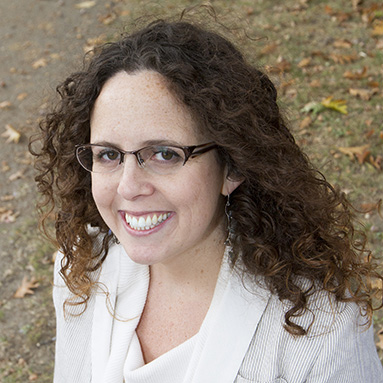
Email: esolovey@wpi.edu
Phone: +1 (508) 8315000 x6936
My research is in human-computer interaction and human-AI interaction. One focus of my research is on next-generation interaction techniques, such as brain-computer interfaces, physiological computing, textile sensing, radar sensing, and reality-based interaction. My students and I design, build and evaluate interactive computing systems that use machine learning approaches to adapt and support the user’s changing cognitive state and context. I also investigate novel paradigms for designing with accessibility in mind, particularly for the Deaf community. Much of my work also explores ...
view profileOther Affiliated Faculty
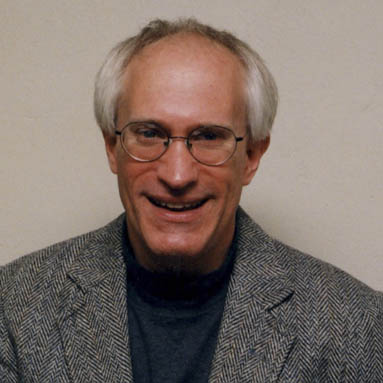
Email: dadams@wpi.edu
Phone: +1 (508) 8315000 x5432
This is a great place to do biology! WPI lies within a driving commute of 260 different biotech companies, and is located within one of the world's two main meccas for biotechnology.My lab's main interest is the use of neurotrophic factors (NTFs) as potential treatments for stroke and Alzheimer's disease. NTFs are proteins produced during development when the nervous system is initially forming, that act to help nerve cells survive and divide. Once the nervous system is formed, their synthesis typically diminishes. Our approach is to use genetic engineering and chemical synthesis to ...
view profile
Email: dalbrecht@wpi.edu
Phone: +1 (508) 8315000 x4859
My research is in the area of microtechnology and neuroscience, with a focus on developing quantitative tools to study how neural signals govern behavior. My laboratory aims to investigate the molecular and genetic basis of neural circuit function and dynamics, to develop bioinformatic tools for analysis of high-content neural data, and to design rapid cellular and whole-organism screens for therapeutic drugs and genetic modulators affecting neural disease. Research in the lab develops an interdisciplinary set of skills in microfabrication, computation and modeling, lab automation/robotics, ...
view profile
Email: anarnold@wpi.edu
Phone: +1 (508) 8315000 x6825
My research focuses on inverse problems and uncertainty quantification, incorporating elements of applied and computational mathematics, statistics, and scientific computing. Broadly speaking, inverse problems involve finding the unknown causes of observed effects, and uncertainty quantification plays a key role in understanding the reliability of predicted effects due to variability in the causes. In the problems that I consider, these causes are typically the unknown inputs (or parameters) of a system, and the effects are some partial, noisy observations of the system components. The ...
view profile
Email: mbakermans@wpi.edu
Phone: +1 (508) 8315000 x4910
I possess a strong commitment to student education, and a goal of mine is to stimulate students' critical thinking and problem-solving abilities. Recently, students and I have been on a journey to open classroom content and discussions in an interdisciplinary and inclusive way. Students are challenged to rethink their role as active knowledge producers beyond the class as students become co-authors of open educational resources. For example, students are co-authors of multiple texts, like Extinction Stories, Climate Lessons, and Current Challenges in Biodiversity and Conservation. More ...
view profile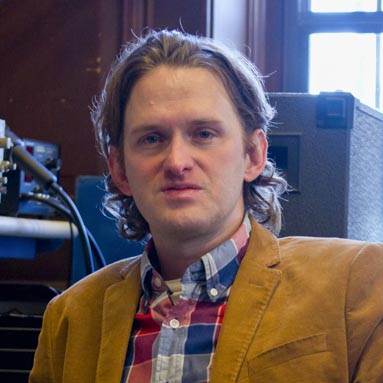
Email: sdbarton@wpi.edu
Phone: +1 (508) 8315000 x5620
I compose, perform, record, mix and produce electroacoustic music; I am interested in how we can use the tools and techniques of audio production to explore new musical territory. I build mechatronic and robotic musical instruments; I am interested in how we can free electronic music from the world of speakers through computer-controlled automatic mechanical instruments. I conduct research and experiments that explore how our cognitive and perceptual processes affect our musical experience; I am interested in how we can use such research to guide our compositional and analytic activities. I am ...
view profile
Email: bianchi@wpi.edu
Phone: +1 (508) 8315000 x6435
Professor Frederick Bianchi works in the area of music technology. As the director of music technology research, Bianchi works with students from all disciplines. His particular focus is Virtual Orchestra technology, multichannel sound design, and neuroscience research. In addition to overseeing the Media Arts Group Innovation Center (MAGIC), Professor Bianchi is also the director of the Bar Harbor, Maine Project Center and the Glacier National Park Project Center.
view profile
Email: kbilliar@wpi.edu
Phone: +1 (508) 8315000 x5384
Understanding the mechanisms by which mechanical forces regulate the development and healing of connective tissues and the pathogenesis of disease is becoming one of the foremost problems at the intersection of biomechanics and cell biology—it has spawned the field of mechanobiology. In our lab we use precisely engineered, two-dimensional and three-dimensional constructs as model systems to study the effects of external internal (cell-generated) forces on cell behavior, matrix biochemistry, and the biomechanics of soft tissues and biomaterials. We have developed many innovative systems to ...
view profile
Email: scburdette@wpi.edu
Phone: +1 (508) 8315000 x5224
Projects in the Burdette group start with synthesis. We use an array of synthetic techniques to make light-reactive small molecule metal ion chelators (photocages), and an equally wide number of analytical techniques to characterize the metal binding properties and photochemistry of those complexes. We also make and modify metal organic frameworks (MOFs) with solvothermal and other methods. Both photocages and MOFs can be applied to a variety of applications from human health to functional chemical tools.One focus for the photocages we design and make is to map cellular metal ion signaling ...
view profile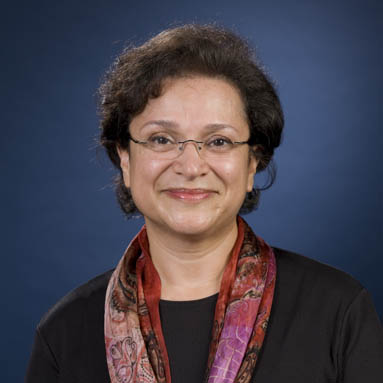
Email: djamasbi@wpi.edu
Phone: +1 (508) 8315000 x5266
I specialize in user experience and decision-making research, focusing on uncovering the intricacies of human cognition to understand the factors that enhance or impede the effective use of information technologies.Since people predominantly use their eyes to process information, I utilize eye-tracking technology to study user reactions to product and service designs. For example, I analyze eye movement data to evaluate user engagement with various content, ranging from embedded information on organizational websites to complex details, such as diagnosis and treatment options, in medical ...
view profile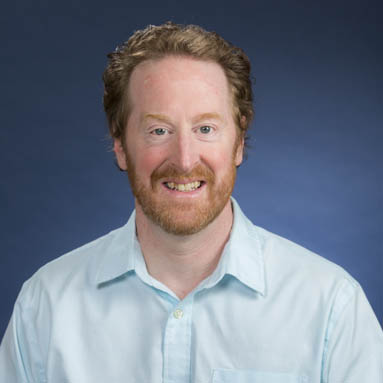
Email: jduffy@wpi.edu
Phone: +1 (508) 8315000 x5579
Defining signaling pathways that program cellular diversity is one of the foremost problems in biology and is central to my research interests. In the lab we use molecular, genetic, and biochemical approaches to characterize the function of these pathways and to gain insight into their role in disease. To date, the lab has focused on the Epidermal Growth Factor Receptor network, a principal therapeutic target for a variety of human cancers. This work involved the characterization of Kekkon1 (Kek1), an archetypal LIG molecule, as a novel feedback inhibitor of the EGFR network. ...
view profile
Email: mbelmes@wpi.edu
Phone: +1 (508) 8315000 x5182
Since arriving at WPI in 1990, I have had the great pleasure of teaching a variety of organization studies undergraduate and graduate courses, engaging in organization studies research and theory development, and offering service to the university, the Business School, and my field. With respect to teaching, I have framed my role in the classroom as helping technically-minded students become more cognizant and mindful of themselves and of the human and behavioral dimensions of organization life. I engage students via experiential methods including digital storytelling, ...
view profile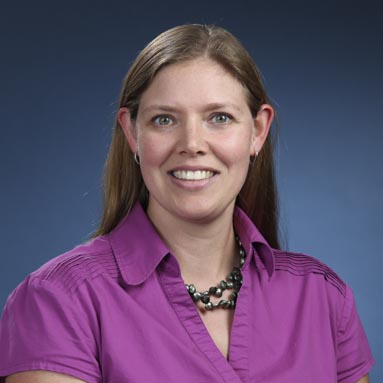
Email: nfarny@wpi.edu
Phone: +1 (508) 8315000 x6511
My lab works broadly in the emerging field of synthetic biology. Synthetic biology seeks to apply engineering design principles to the understanding and creation of biological systems. I use synthetic biology to design biosensors and bioremediation strategies for various environmental contaminants that impact human health, including lead, arsenic, and other toxic substances. We apply the tools of synthetic biology to address global challenges related to water, soil, and human health. Our water and soil applications focus around understanding how we can use genetically engineered microbes ...
view profile
Email: agericke@wpi.edu
Phone: +1 (508) 8315000 x5263
Arne Gericke is the Dean of Undergraduate Studies ad interim, Director of the Office of Undergraduate Research, and a Professor of Chemistry & Biochemistry. The research in my lab is generally concerned with the biophysical characterization of lipid mediated protein functions. We are particularly interested in studying phosphoinositide mediated signaling pathways. Phosphoinositide lipids represent only a small fraction of lipids in cellular membranes, yet their importance for cellular processes cannot be overstated. Phosphoinositides mediate physiological functions by regulating the ...
view profile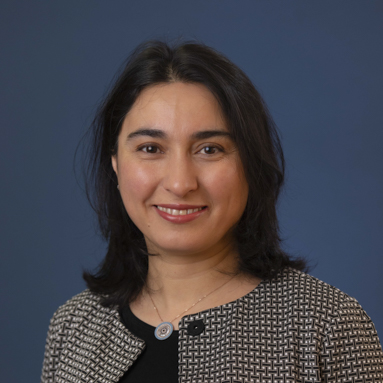
Email: uguler@wpi.edu
Phone: +1 (508) 8315000 x6914
My research interests lie in the broad area of circuits and systems, and my primary area of interest is analog/mixed signal integrated circuits. More specifically, I am interested in the circuit design of sensing interfaces and energy harvesting and wireless power transmission systems for applications in the IoT. Exponential increases in the demand for next-generation clinical and telemedical diagnostic devices require monitoring and measurements from inside and outside of the body via implantable and wearable sensors predicted to be an important pillar of smart healthcare. My vision is ...
view profile
Email: ltharrison@wpi.edu
Phone: +1 (508) 8315000 x5952
Information visualization is a powerful means for understanding data and informing human minds. As people begin to rely on visualizations to make high-impact and even life-critical decisions, there is a growing need to ensure that information can be perceived accurately and precisely. My research addresses these challenges by leveraging cognitive and perceptual principles to quantify and model user performance with visualizations. Results from these projects have led to visualization design guidelines in domains such as cyber security and health-risk communication, as well as a better ...
view profile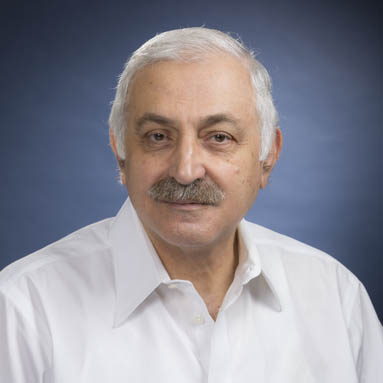
Email: mhumi@wpi.edu
Phone: +1 (508) 8315000 x5213
I am a mathematical physicist working on the development and application of mathematical methods to atmospheric research and satellites orbits. As part of this research, I am also developing new methods for the use of symmetry principles to solve differential equations. I have taught a broad spectrum of applied math courses on the undergraduate and graduate levels.
view profile
Email: sji@wpi.edu
Phone: +1 (508) 8315000 x4956
The biomechanical mechanisms behind traumatic brain injury (TBI) have been an active research focus for more than 70 years. However, the field is still largely focused on impact kinematics or estimated brain responses in generic regions from single head impact to predict a binary brain injury status on a population basis. An important research focus in my lab is to integrate advanced neuroimaging into TBI biomechanics research to understand injuries to functionally important neural pathways. At the same time, we develop techniques to achieve near real-time response feedbacks. This is critical ...
view profile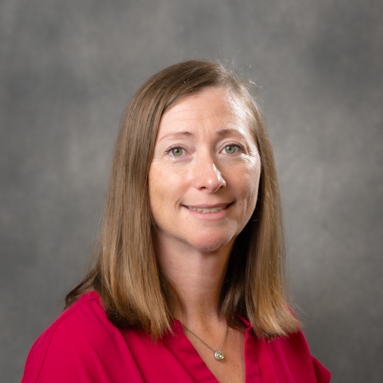
Email: sdolson@wpi.edu
Phone: +1 (508) 8315000 x4940
At WPI, I enjoy teaching all courses fundamental to applied mathematics, scientific computing, and modeling. I look forward to mentoring students interested in working on areas in Mathematical Biology, Computational Biofluids, and Scientific Computing. I specialize in Mathematical Biology, understanding emergent properties of complex systems. The goals of these models are to understand the underlying biological processes and make predictions. Please visit my website to learn more about recent research projects.
view profileEmail: ryder@wpi.edu
Phone: +1 (508) 8315000 x6011
I have a long-standing interest in applying computer science and mathematics to solve biological problems. I am currently the Associate Director of WPI’s Program in Bioinformatics and Computational Biology, and I am always looking for students with interests in this exciting interdisciplinary area. One of my goals in teaching biology is to help students to think more quantitatively about biological questions. A few years ago, my colleague Dr. Brian White of UMass Boston and I were awarded a grant from the NSF to develop a course, “Simulation in Biology”. In this class, students use an approach ...
view profile
Email: dtang@wpi.edu
Phone: +1 (508) 8315000 x5332
I have been teaching and conducting research at WPI since 1988. Teaching is a lot of fun since it involves interactions with students, and we can pass our knowledge and experiences to students for their better future. I have been conducting research for cardiovascular modeling in the past 30 years and has made various contributions, especially in using image-based modeling for vulnerable plaque progression and rupture investigations. I collaborate with faculty from many universities, including Harvard, MIT, University of Washington (Seattle), Washington University (St. Louis), Emory ...
view profile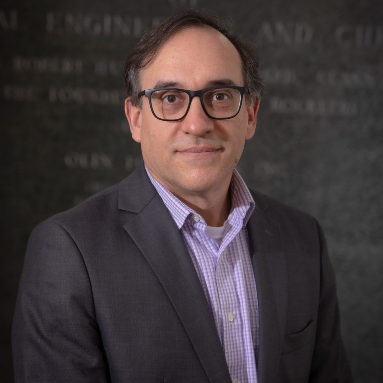
Email: lvidali@wpi.edu
Phone: +1 (508) 8315000 x4194
I deeply enjoy teaching, in particular conveying the important roles played by plants. It is a great reward when my students realize that plants are more complex and interesting than they anticipated, and they want to learn more. I enjoy that students at WPI are open about thinking in new ways; this critical thinking is the result of intense project-based learning. My research aims at understanding the molecular and cellular mechanisms underlying plant cell organization and growth, with the long-term goal of increasing plant productivity. I am particularly interested in understanding the ...
view profile
Email: cew@wpi.edu
Phone: +1 (508) 8315000 x5622
My research has primarily focused on Internet application performance and measurement with more recent work examining issues related to Internet privacy. This work has led to a number of research publications and presentations as well as visibility in venues such as the New York Times, Wall Street Journal and NPR Science Friday. WPI is a great place for me to be a faculty member as I have the opportunity to teach and advise top-quality students as well as pursue interesting directions of research. Teaching students in systems and networking courses provides the opportunity to expose ...
view profile
Email: wwong2@wpi.edu
Phone: +1 (508) 8315000 x5706
Prior to entering academia, I worked as Chief Technologist, Director of Information Systems, and Director of Technical Operations at various corporations in the information systems and software field. For the past 22 years teaching in university courses, I have aimed to impart this industry experience in my software engineering and databases courses by incorporating real life projects, examples, and whenever possible, collaborations with business organizations such as Brigham & Women's Hospital, the US Treasury, Dartmouth-Hitchcock Medical Center and Massachusetts General Hospital. It is ...
view profile
Email: mwu2@wpi.edu
Phone: +1 (508) 8315000 x6377
My research involves analysing size and shape development in biological processes. The form of living systems can be affected by growth and internal force, so it is important to know how they are patterned spatial-temporally. To do this, I develop deterministic approximate inference schemes using static and live imaging data; and develop mathematical models and numerical methods to describe tissue growth and morphogenesis. My research at WPI has attracted interest from all levels of students, and they have become enthusiastic and creative contributors.
view profile
Email: zheyangwu@wpi.edu
Phone: +1 (508) 8315000 x5031
Professor Wu's research interest lies in applying the power of statistical science to promote biomedical researches. In statistical genetics, he is developing novel statistical theory and methodology to analyze genome-wide association (GWA) data and deep (re)sequencing data to hunt new genetic factors for complex human diseases. In epigenetics, he is studying gene expression regulation mechanisms through chromatin interaction, and RNA silencing pathways in the developmental stages of germ-line cells. In clinical studies, he is establishing statistical models to predict carotid atherosclerotic ...
view profileEmail: vadim@wpi.edu
Phone: +1 (508) 8315000 x5495
My professional interests include electromagnetic and multiphysics modeling, scientific computations, and optimization in interdisciplinary areas involving high frequency electromagnetics. I am particularly interested in phenomena linked with interactions of electromagnetic fields with matter including processes and systems in microwave power engineering. I run the Industrial Microwave Modeling Group (IMMG), which I established in 1999 as a division of WPI’s Center for Industrial Mathematics and Statistics (CIMS). This unit allows me to enrich traditional research activities by direct ...
view profile